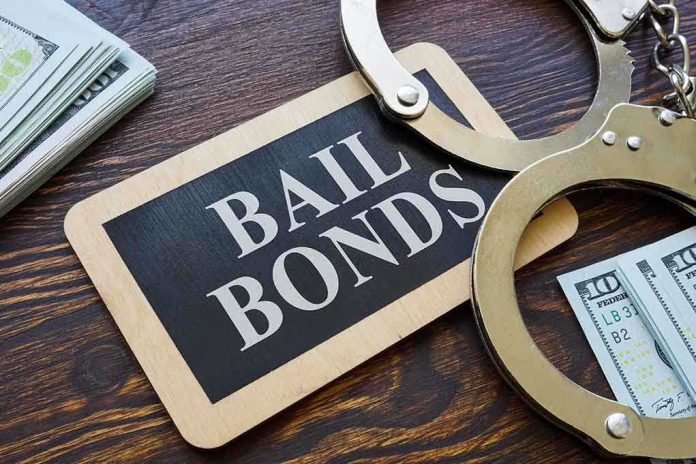
Lenient bail reforms in blue cities spark outrage as repeat offenders roam free while DAs focus on prosecuting Trump.
Story Highlights
- Manhattan DA Alvin Bragg criticized for prioritizing Trump’s prosecution over local crime.
- Bail reforms in New York City lead to repeat offenders being released and reoffending.
- Trump and GOP use urban crime as a key campaign issue, highlighting safety concerns.
- Crime rates have declined, but public perception remains high due to media coverage.
Manhattan’s Lenient Bail Reforms Under Scrutiny
In New York City, the implementation of lenient bail reforms has led to significant public safety concerns. Since taking office in 2021, Manhattan District Attorney Alvin Bragg has prioritized reducing pretrial incarceration, downgrading 52% of felony cases to misdemeanors by 2022. This policy has allowed repeat offenders to cycle through the justice system, often leading to reoffending and increased public anxiety over crime in the city.
The criticism towards Bragg has intensified as his office focuses resources on prosecuting former President Donald Trump, overshadowing the pressing issue of local crime. His prosecutorial priorities have come under fire, with opponents arguing that political motivations have taken precedence over the safety of New York residents.
Crime and Political Narratives in Blue Cities
Despite the high-profile cases of repeat offenders, crime rates in many Democratic-led cities, including New York, have actually declined in recent years. However, media coverage and political rhetoric continue to amplify the perception of rising crime. This narrative has been leveraged by former President Trump and the GOP, who use urban crime as a wedge issue to criticize Democratic leadership and campaign for stricter law enforcement policies.
The national debate over crime and justice reform remains polarized. While Democrats defend reform efforts aimed at addressing systemic inequities, Republicans emphasize the need for law and order, accusing progressive prosecutors like Bragg of failing to protect citizens. This ongoing battle affects public perception and shapes policy decisions at both local and national levels.
Impact and Future Implications
The political exploitation of crime in blue cities is likely to continue influencing electoral outcomes and policy directions. In the short term, this may lead to increased scrutiny on local prosecutors and heightened public anxiety. In the long term, if public backlash grows, there could be a rollback of bail reform and progressive prosecution policies. Additionally, federal intervention in local law enforcement might be considered, further intensifying the “red state vs. blue city” conflict.
Revolving door of blue city repeat offenders keep being released as DA spent time prosecuting Trump | Adam Sabes, Fox News
Four cases highlight pattern of lenient treatment for offenders with dozens of prior arrests
Repeat offenders in New York City keep being given chances to… pic.twitter.com/oJk2mHLvwl
— Owen Gregorian (@OwenGregorian) November 3, 2025
As the debate continues, the challenge for city officials and prosecutors will be balancing reformist agendas with public safety needs. Ensuring community trust and addressing crime effectively without compromising justice reform will be critical in shaping the future of urban criminal justice policies.
Sources:
Verite News: Trump’s Crime Crackdown Threats
Fox News: Revolving Door of Offenders














